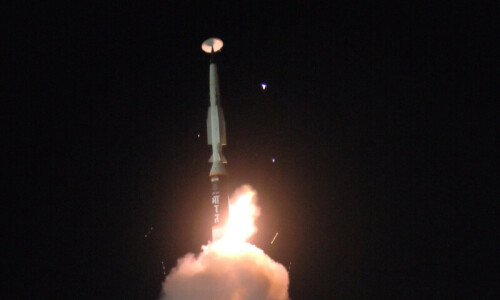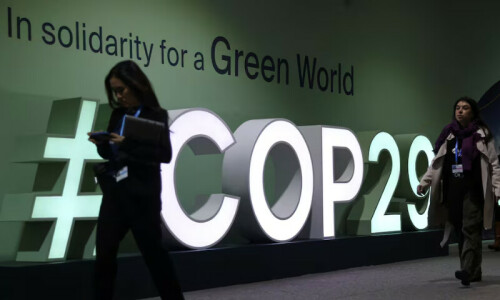NEW DELHI, Nov 30: Indian Home Minister Shivraj Patil resigned on Sunday owning moral responsibility for the bloody attacks in Mumbai that killed around 200 people, as New Delhi’s ties with Pakistan went into a tailspin.
The mind-boggling violence has already appeared to have international repercussions.
Reports said India would persuade the US to mount pressure on Pakistan to launch a crackdown on terror groups it says exist across the border. Indian Foreign Secretary Shivshankar Menon will leave for Washington on Monday to meet the transition team of President-elect Barack Obama.
Mr Menon would meet key members of the transition team who could influence ties between the two countries. India is concerned over the Obama administration’s keen interest in the resolution of Kashmir issue.
Mr Menon’s travel plans coincide with the proposal by Mr Obama to name Senator Hillary Clinton as his secretary of state on Monday.
If tensions do escalate in any way between India and Pakistan, as is feared by analysts, Ms Clinton can be expected to be seen frequently in the region as did her Republican counterpart Colin Powell during the 2002 crisis.
Mr Patil’s resignation came as Prime Minister Manmohan Singh chaired an all-party meeting to discuss security measures needed to protect against future attacks. However, senior opposition leader Lal Krishan Advani kept away, citing electioneering engagements in neighbouring Rajasthan. Mr Advani’s party has asked for the government to go, saying Mr Patil’s exit was too little and too late.
The attacks on Mumbai began on Wednesday night, which was the eve of state elections in BJP-ruled Madhya Pradesh and ended on Saturday morning when polls began in Congress-ruled Delhi.
BJP leaders say the government’s ordinary handling of the terror attacks would help them in the state polls as well as in the general elections due in April next year.
Demands have risen also for more heads to roll and for a while it was being thought that National Security Adviser M.K. Narayanan too had quit, but this was apparently not the case. Mr Narayanan’s predecessor Mr Brajesh Mishra had a meeting with the prime minister on Sunday, giving rise to rumours that he may be recalled to take up his old job.
It is understood that the two discussed Dr Singh’s proposal to set up a federal agency to tackle terror attacks.
The day after the siege’s end, the official death toll rose to 183.
But the police said they were still waiting for the final figures of bodies pulled from the wreckage of the Taj Mahal Hotel.
Opposition groups have asked whether Indian authorities could have anticipated the attack and had better security in place, especially after a 2007 report to parliament that the country’s shores were inadequately protected from infiltration by sea – which is how the attackers sneaked into Mumbai.
Mr Patil’s resignation is the clearest sign yet that the current government is feeling pressure from the general public in India to make amends. This has not stopped tensions from swelling with Pakistan although practically every official there has promised that they would act swiftly if any connection to Pakistani-based militants were found. But there were also reports of warnings that troops could be moved to the border quickly if relations with India worsened.
The world watched with horror as Indian forces grappled with the well armed and evidently better-trained militants. “It was still unclear whether the attackers had collaborators already in the city, or whether others in their group had escaped,” said one account out of Mumbai.
“And perhaps the most troubling question to emerge for the Indian authorities was how, if official estimates are accurate, just 10 gunmen could have caused so much carnage and repelled Indian security forces for more than three days in three different buildings.”














































Dear visitor, the comments section is undergoing an overhaul and will return soon.